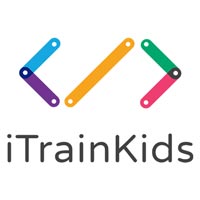Apr 14 | 2020
With thanks to: Carol Allen, Education Advisor for ICT and Inclusion, Hartlepool LA @caroljallen John Galloway, Advisory Teacher for ICT, SEN and Inclusion, Tower Hamlets @johngalloway
The closure of schools and colleges presents challenges to the most able students and their teachers. It is a whole different world for the teachers, parents and carers of students with special needs, as they seek new ways to support their charges. Bett asked Advisory Board members and SEND specialists Carol Allen and John Galloway (link to advisory board page?) for some advice on approaches to support the learning of SEND students during the closures of schools:
Each student with SEND is unique, requiring their own special resources to aid them through school and college. Without the specialised resources immediately to hand, smartphone apps are a great way to engage learners from afar. The personalised, gamified nature of learning through apps can be a more relaxing approach for students with additional needs. A selection can be found via this link. https://www.educationalappstore.com/
The Department for Education in the UK has pooled a list of resources for learners of all abilities (https://www.gov.uk/government/publications/coronavirus-covid-19-online-education-resources/coronavirus-covid-19-list-of-online-education-resources-for-home-education), including a section on apps for SEND based learning, ranging from apps to help with dyslexia, to apps to support learners with visual and communication difficulties.
SEND and ICT specialist John Galloway writes that the key to successful learning comes from enjoyment and engagement, which can be implemented and delivered in a multitude of ways and not just from within the boundaries of a school environment:
‘This is a great opportunity for all learners to find out more about what interests them, and to demonstrate that knowledge in ways that are meaningful to them - whether that is through writing, drawing, making videos and animations, or music and dance. The conventions of learning are, momentarily, disrupted, try and make that an opportunity, not a limitation.’
Students can use the time to explore learning rather than just be told how to learn. By encouraging them to go on individual journeys to help discover new interests, they will find the process of being away from classmates easier. This in turn will allow them to have something to share with their classmates and teachers when schools reopen again. This situation is new for everyone so it is important that initially people take some time to slow down and understand where change is going to hit the hardest. Carol Allen, SEND Advisor for Hartlepool LA emphasises that learning from home is not about replicating a school classroom but above all else, creating a space in which a child’s sensory and emotional needs are met, and that they feel safe:
‘The first message must be not to try and attempt to provide a typical school day. But to provide a safe, secure and motivating daily life that supports the mental and physical wellbeing of the child. it is important to create a structure or routine as this provides security. Learning linked to everyday home activities, washing up, laying the table, drawing, painting, reading books are equally, if not more, valid and appropriate. Time to explore special interests, either personal or family based is very effective learning.’
Start each day with asking what your child would like to do, using that as the base build the day’s activities around what is interesting to the student and tie that in with the wider needs of the curriculum. The situation at present allows educators to loosen the grip on how SEND pupils engage with topics and see what inspires them to learn. By giving them this freedom to make learning more personalised the students will still be willing to learn when schools return.
There are so many ideas, blogs (https://ictandinclusion.edublogs.org/ ) and platforms (https://marioframework.com/) to assist with SEND and home learning that is can appear overwhelming. The key is to take it step by step, stay relaxed, and above all enjoyable to encourage a life-long love of learning.
Each student with SEND is unique, requiring their own special resources to aid them through school and college. Without the specialised resources immediately to hand, smartphone apps are a great way to engage learners from afar. The personalised, gamified nature of learning through apps can be a more relaxing approach for students with additional needs. A selection can be found via this link. https://www.educationalappstore.com/
The Department for Education in the UK has pooled a list of resources for learners of all abilities (https://www.gov.uk/government/publications/coronavirus-covid-19-online-education-resources/coronavirus-covid-19-list-of-online-education-resources-for-home-education), including a section on apps for SEND based learning, ranging from apps to help with dyslexia, to apps to support learners with visual and communication difficulties.
SEND and ICT specialist John Galloway writes that the key to successful learning comes from enjoyment and engagement, which can be implemented and delivered in a multitude of ways and not just from within the boundaries of a school environment:
‘This is a great opportunity for all learners to find out more about what interests them, and to demonstrate that knowledge in ways that are meaningful to them - whether that is through writing, drawing, making videos and animations, or music and dance. The conventions of learning are, momentarily, disrupted, try and make that an opportunity, not a limitation.’
Students can use the time to explore learning rather than just be told how to learn. By encouraging them to go on individual journeys to help discover new interests, they will find the process of being away from classmates easier. This in turn will allow them to have something to share with their classmates and teachers when schools reopen again. This situation is new for everyone so it is important that initially people take some time to slow down and understand where change is going to hit the hardest. Carol Allen, SEND Advisor for Hartlepool LA emphasises that learning from home is not about replicating a school classroom but above all else, creating a space in which a child’s sensory and emotional needs are met, and that they feel safe:
‘The first message must be not to try and attempt to provide a typical school day. But to provide a safe, secure and motivating daily life that supports the mental and physical wellbeing of the child. it is important to create a structure or routine as this provides security. Learning linked to everyday home activities, washing up, laying the table, drawing, painting, reading books are equally, if not more, valid and appropriate. Time to explore special interests, either personal or family based is very effective learning.’
Start each day with asking what your child would like to do, using that as the base build the day’s activities around what is interesting to the student and tie that in with the wider needs of the curriculum. The situation at present allows educators to loosen the grip on how SEND pupils engage with topics and see what inspires them to learn. By giving them this freedom to make learning more personalised the students will still be willing to learn when schools return.
There are so many ideas, blogs (https://ictandinclusion.edublogs.org/ ) and platforms (https://marioframework.com/) to assist with SEND and home learning that is can appear overwhelming. The key is to take it step by step, stay relaxed, and above all enjoyable to encourage a life-long love of learning.

.png?width=423&height=100&ext=.png)





.png?ext=.png)




















